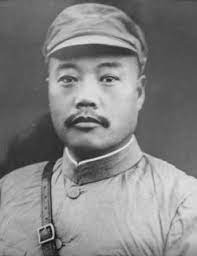Yang Yu-t'ing (1885-10 January 1929), Manchurian military officer who served as chief of staff under Chang Tso-lin (q.v.) and who later was executed by Chang's son Chang Hsuehliang (q.v.). The Fak'u district of Fengtien (Liaoning) was the birthplace of Yang Yü-t'ing. Little is known of his family background or early years except that he decided […]










